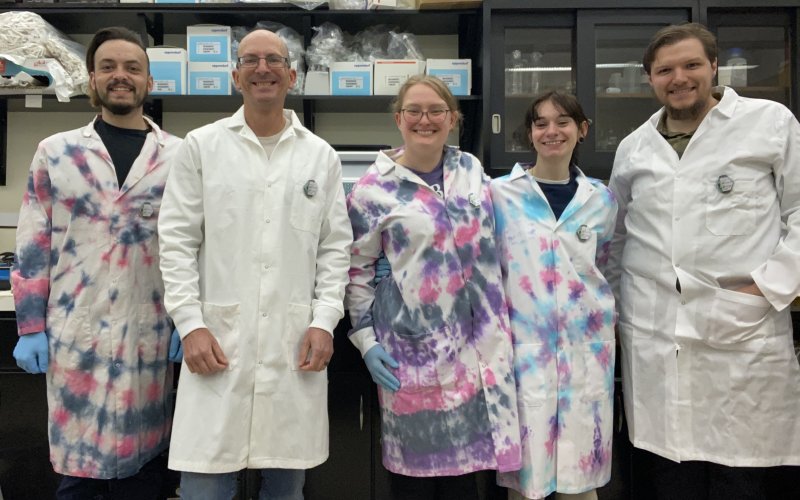Zuloaga Exploring Effects of Pregnancy and Menopause on Alzheimer’s Risk

By Erin Frick
ALBANY, N.Y. (May 27, 2025) — University at Albany’s Damian Zuloaga was awarded $300,000 to study how pregnancy and menopause impact Alzheimer’s disease (AD) risk. Zuloaga, an associate professor in the Department of Psychology at the College of Arts and Sciences, received the grant from BrightFocus Foundation, a private nonprofit dedicated to supporting promising research focused on diseases affecting vision and the brain.
More than 7 million Americans aged 65 and older are living with Alzheimer’s disease, a progressive, terminal brain disorder that has no known cure. Without new interventions, the number of cases is expected to more than double by 2050. The disease disproportionately affects women, who account for two-thirds of people diagnosed with Alzheimer’s.
“Life course factors unique to women, including pregnancy and menopause, likely contribute to female vulnerability to Alzheimer’s disease; however, how these two factors interact to affect AD-related outcomes is unknown,” said Zuloaga. “In this study, we are seeking to determine how the combination of pregnancy and menopause affect cognitive-behavioral functions and neuropathology associated with Alzheimer’s disease.”
Zuloaga’s research program aims to understand how hormones affect behavior, with a particular focus on differences in the ways sex hormones like testosterone and estrogen regulate stress systems in the brain and impact behavioral outcomes and disorders like anxiety and depression.
In earlier work, Zuloaga has examined the complex hormonal and neurological changes that occur during and after pregnancy. One such project looked at stress systems in the brain during the postpartum period, focusing on neurons that regulate stress responses by expressing a particular protein receptor. They found that receptor levels changed dramatically after giving birth, which could contribute to postpartum depression and anxiety. The findings help explain these poorly understood aspects of women’s health.
In recent years, Zuloaga’s lab has begun exploring ways that life events specific to women might specifically influence Alzheimer's disease risk. His newly funded project will shed light on how the combined effects of pregnancy, including multiple pregnancies, and menopause increase women’s susceptibility to Alzheimer's disease. The study will use mouse models to determine how pregnancy and menopause together impact memory, cognition and Alzheimer's-related brain pathology.
“Mouse models play a critical role in helping us understand human biological systems, including how hormonal changes, such as those that occur during pregnancy and menopause, impact behavior and brain health,” said Zuloaga. “With these models, we can build a foundation of understanding unmatched by other methods, which is an essential step towards developing new disease treatments and, potentially, cures.”
Working with his wife and collaborator Kristen Zuloaga, professor of neuroscience and experimental therapeutics at Albany Medical College, the researchers will rear mice that will undergo one or three pregnancies. A third group, the control, will not reproduce. At the midlife point (around 10 months for mice), they will use a chemical intervention to mimic the hormonal changes that humans experience during menopause. The researchers will then use behavioral tests to assess the combined effects of pregnancy and “menopause” on memory and cognition. Later, they will examine the brain tissue for amyloid beta pathology (a hallmark of Alzheimer's disease) and neuroinflammation markers, which signal inflammation in the brain also associated with the disease.
“Childbirth and menopause are two major female-specific life events that are known to have impacts in the brain owing to chemical changes and hormonal fluctuations that activate stress response pathways,” Zuloaga said. “These changes appear to promote Alzheimer’s disease, but we don’t know which specific factors drive up risk.
“This study will help us understand how hormonal changes throughout a woman's life course shape brain health. By combining two important aspects of female physiology that have not been comprehensively studied together before, our findings will advance what we know about this understudied area of women’s health and spur new research questions into the ways hormones affect brain function and disease progression broadly.”




